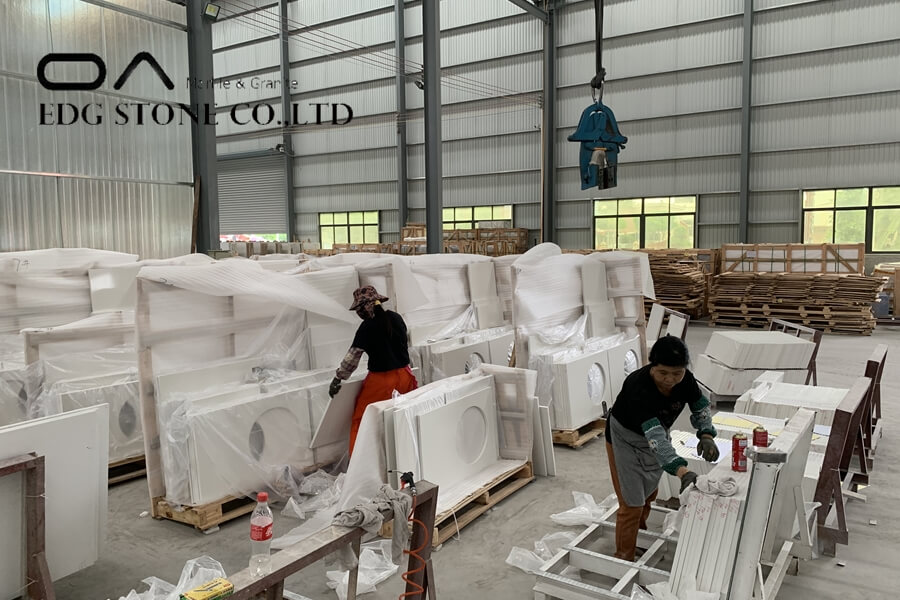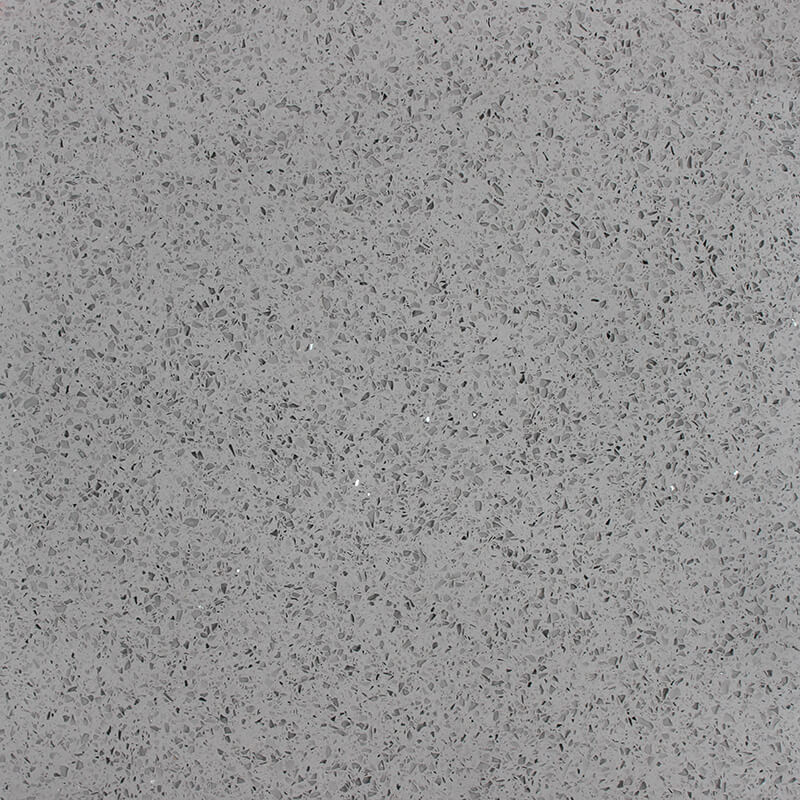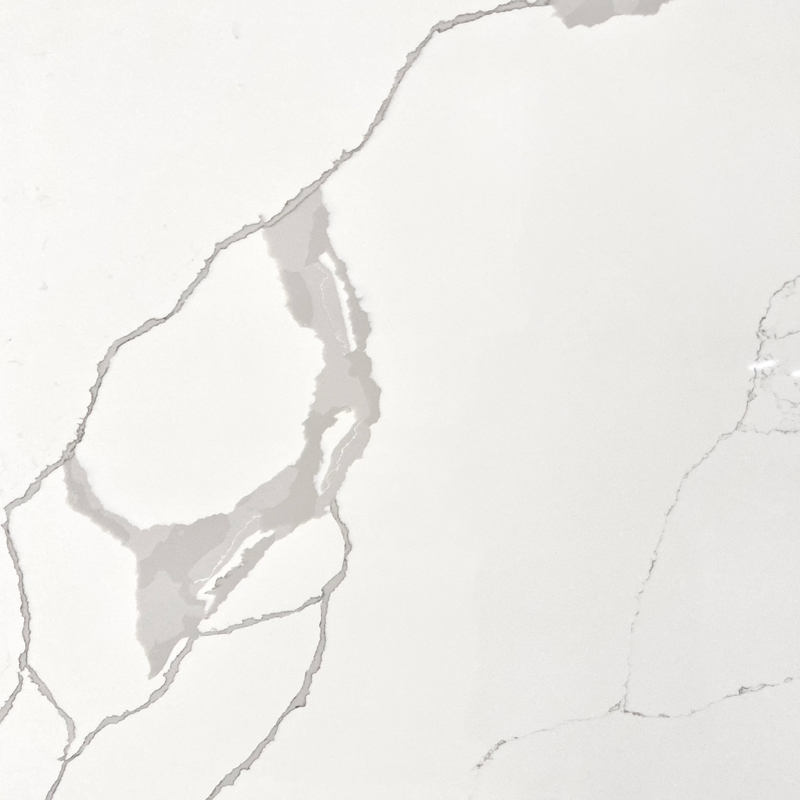Quartz countertops are made from a mixture of fine quartz stone, resin, and pigments. The process involves a series of steps that are designed to produce a material that mimics the look of natural marble. The raw materials are crushed and mixed with resin, which acts as a binder to hold everything together. The mixture is then poured into a mold and heated to a high temperature to cure the resin. This creates a solid, scratch-resistant surface that is perfect for use in kitchens and bathrooms.

One of the key advantages of quartz countertops is their durability. They are resistant to scratches, chips, and stains, making them ideal for popular work surfaces such as kitchen countertops and bathroom vanities. Quartz countertops are also non-porous, meaning that they won't absorb spills or odors. This makes them easy to clean and maintain.
Another advantage of quartz countertops is their consistency in color and pattern. Unlike natural stone, which can have variations in veining and color, quartz countertops are uniform in their appearance. This means that you can choose the exact shade and pattern that you want for your countertops. A popular trend in quartz countertops today is the marble effect quartz countertop. These countertops offer the look of natural marble but with the benefits of quartz.
In comparison, artificial marble is manufactured from a mixture of polyester resin, crushed marble, and pigments. The manufacturing process involves pouring the mixture into molds and then letting it harden. The end result is a material that looks like natural marble but is less expensive and more durable.
While artificial marble may be less expensive, it has some disadvantages that homeowners need to be aware of. It is not as durable as quartz and is more prone to chipping and cracking. It is also more porous, meaning that stains and odors can be harder to remove. Homeowners also have less choice when it comes to pattern and color of artificial marble.
In conclusion, while both quartz and artificial marble have their advantages, quartz countertops are the clear winner in terms of durability, low maintenance, and design flexibility. With their marble effect quartz countertops, homeowners can enjoy the look of natural marble without the expense and upkeep. If you are looking for a beautiful, long-lasting, and low-maintenance countertop material, then quartz is the way to go.









